This post pains me on two levels. The first in the post itself. Generally speaking I try keep nyesmind content original introspection on my time here by not to re-posting other articles. The second reason is in an admission that the post entails. When travelling abroad one should seek out new things. Food is a marvelous means to this end. So to eat one's own food in a strange land is a bit of a cop out and something I tend to feel both bad and a little embarrassed about. However, this article was on point enough to entail my breaking the first rule and coming clean about the second. What really got me was the line about Colonel Sanders' portrait being more ubiquitous than that of Mao. It's not an exaggeration. At one place in Tianjin there were literally two across the street from each other. So here goes... My name is Nylon and I eat at KFC at least twice a week. Oh, that bacon mushroom rice thing is my jam! There's a spicy variant I tend to opt for though. They've got these green crunchy things in them... no idea what they are but quite scrumptious. KFC is essentially impossible to avoid because there's one right across the street from my building and then another restaurant every three feet or so. You can only argue with the Colonel to such an extent before you give in. Bloomberg article about KFC in ChinaFor the record I also eat at the Yonghe King they mention pretty often too as there's one right next door to the KFC. Generally Chinese fast food restaurants give you a better bang for your buck and are really good, but for some reason I find them lacking in Dalian.
So up until yesterday I didn't know my address. I knew what it says on the lease, what the realtor said it is and what my landlord says it is, but how to get mail delivered here was a different story. Things like apartment number, building number and so forth might be construed differently in another culture. For instance, if you wanted to say where my hometown is in English it's “West Palm Beach, Florida”. In Chinese it would be “Florida, West Palm Beach”. Bigger comes first. Then there's the matter of street address. Outside the door of the building it says 31... but the lease says 29. The building also has two towers, which the realtor called “units” in the address he gave to me. In America “unit” would refer to the apartment. And of course there's always the question of whether pinyin would suffice or if the address would need to be written in Chinese
Thankfully there was a way of testing it out before getting anything of value sent here. As noted in the last post I've subscribed to a variety of publications over the years but the one that's stuck is the Economist. Luckily it's also the most international of them. So all I had to do was keep updating the address until something showed up. As it turns out that section of the website doesn't play nice with the firewall here. Ultimately I changed it once, decided to give the change some time and after a little bit chalked it up to a lost cause. Apparently the realtor was correct though because yesterday I received my first Asian edition Economist! Of course, it's March 26th issue (received on April 11th) and the plastic covering is just beat to hell and back. In an initial boon to my confidence in my “estate agent” today confirmed that the address is definitely correct as I received another Economist... the March 19th issue.
At least subscribing in the States for two years as a student has saved a ton of money. The cover price is 75 yuan (about $11.50).
I could very well be years behind the ball on this one. Nonetheless it's got me excited. Recently it came to my attention that the Economist has digitized all of their archives. For every college paper typed out on my computer there was at least one search (in vain) for an article from the Economist prior to 1998 (the year their standard digital archives go back to). Though FSU's databases contained a wealth of information from prominent journals, newspapers of record and nearly every Florida newspaper... no Economist. Yet oddly enough, while it would have saved me a great deal of time citing authors had it come online a couple of years ago access to this wealth of information might be more welcome now than then.
The past week or so homesickness has been nagging at me. While this may sound ever so slightly crazy, the Economist has over the years become more than just a magazine (or newspaper) to me. It has a lot to do with the lack of a byline. The magazine/newspaper/let's just call it a newsmag, is well known for not citing it's authors. As a result the tone seems to blend and it kind of speaks with one voice. When they pick sides in their opinion pieces it's always stated clearly as “this newspaper...”. Moreover, as I've been a subscriber for a good five years now my worldview has kind of grown up around it.
My first strong memories of the political realm were during the 2000 election recount, walking in a huge cluster of protesters. The epicenter of it all was about a mile from my house. Not too long after that terrorists ran planes into the Twin Towers. My high school years culminated with the run up to and invasion of Iraq. As a liberal, clearly my thought process was prone to high pitched rhetoric at this time. The years in which my age group came of age politically was tumultuous, divisive,confounding... essentially not a great time to come to opinions about the general state of politics and the world. When American politics started to calm down a bit coincided with the time when I first became an avid reader of the publication. So when I took stock of the scene the Economist was there to whisper in my ear.
Google Archives is intensely cool. The background on my desktop at the moment is actually a Google Archives screenshot. However, this isn't just looking back and reading firsthand what people were seeing as historical events unfolded. Now I get to hear what my 168 year old friend had to say as the south seceded from the Union, as the world stood still during the Cuban missile crisis or at the conclusion of the war to end all wars. Just a stab in the dark, but I'm going to assume they were skeptical of the League.
You know what annoys the hell out of me as a traveler? When people talk ABOUT the stuff they did, but never explain WHERE it is or HOW to get there. It leaves me searching the internet in vain for hours upon hours. So this blog is dedicated SOLELY to getting to the land sled as we had quite the interesting time doing so.
The Dalian Land Sled starts up by the Dalian sightseeing tower and ends in the amusement park section of Labor Park (the one with the giant soccer ball). It turns out that it's necessary to ride a cable car up the mountain to get to the slide (you purchase the ticket at the bottom). In Pinyin labor park is Laodong Gongyuan, which is in Zhongshan district and just to the west of the China Unicom building.
Enter Labor Park from the east side and walk to your left until you find a bunch of amusement park rides. The cable car is nestled toward the back, the ticket office is just to the right of it. On Google maps, the land sled shows up but it's: "Fusi Te Huadao Dalian China".
As to what bus to take, there are no English bus maps in Dalian. Just put your current location into google maps and ask it the best way to go, it's almost always spot on. The marker below is of the cable car entrance.
In my next post I will talk about the land sled. Worth it unless you're on a China budget.
GPS Coordinates of the ent:
N 38* 54.518'
E 121* 37.829'
Q: How much power does it take to send a Delorean into the future? A decent amount of nyesmind readers have in their minds answered instinctively. 1.21 gigawatts. Except pronounced “jigga-watts”. In quainter times when automotive magnates could still raise money with cocaine deals alongside their government bailouts and a gigabyte of memory was unthinkable pronunciation of the term was still up in the air. Not many people needed to use the term. Since then silicon valley has co-opted the measurement from the electrical industry and decided on using a hard “g”. And while a stainless steel car with gullwing doors will always look futuristic, Back to the Future's use of the “j” pronunciation leaves the movie dated... except for 1.3 billion Chinese. Just about any English term when said in Chinese is tweaked somehow. Cola is “kuh-lah”. William is “way-li-an”. Over the past few days I've had reasons to ask for different amounts of digital memory and as it turns out in China “giga” is pronounced like the rapper. As long as we're on the subject of Deloreans though, there's something interesting that I always like to point out. From the 1950s up until extremely recently the standard vision of a future car was still something that flies. In a lot of ways this was a shell game Detroit was playing. Chrysler worked on turbine engines and GM showcased bubble canopies at their Motoramas leaving the public with Jetsons dazzled eyes. Meanwhile the automotive industry produced carburetted pushrod rear wheel drive V8s long past their expiration date. The story of the car from Back to the Future (reader's digest version) is that a young executive from GM quit with visions of making a realistic car of the future. The Delorean Motor Company would produce vehicles with advanced engines, chassis constructed of materials that would let the occupant walk away from a 70mph crash and a stainless steel exterior that would last fifty years. In the end it turned out to be BS. The DMC-12 ended up taking a Lotus Esprit chassis, adding gullwing doors and stainless steel and replacing the expensive Lotus engine with a cheap Volvo one. The Delorean was a dud, as was it's namesake's business model. It turned out Delorean didn't quit GM, he was fired for graft. Time and time again John Z. Delorean went hat in hand to the British government asking for loans (he very astutely put the factory in woefully underemployed Northern Ireland). Then just before the Thatcher government was going to turn off the spigot and things were really going sour Delorean was busted ON VIDEO buying a few kilos of cocaine from an FBI agent. Delorean's legacy was only saved three years later by a movie starring his creation which just happened to become a modern classic. But by the time of the sequel (which was placed in the future instead of the past) Delorean's vision of a pragmatic future car had lapsed, giving way once again to the societal meme of one that flies. People watching the Back to the Future sequel (placed in 2015) when it came out might have been inclined to wonder if they really would have flying cars by that time. But as the year rapidly approaches society has come to grips with the fact that flying cars are a silly notion. The car of the future is efficient and runs on electricity provided by whiz bang high-tech batteries. Of course, the automotive industry as a whole would have been more than happy to keep promising the public flying cars and was dragged kicking and screaming into it by outsiders. Ultimately what happened is exactly what John Delorean feigned in the late 1970s. Introduced in 2009, the Tesla is a full on electric sports car, capable of out accelerating top of the line supercars for a fraction of the price. What's most interesting about the Tesla/Delorean connection though is that they're both just Lotuses suited to meet different purposes. Lotus Elise interior:
Tesla Roadster interior:
Lotus Esprit interior:
Delorean DMC-12 interior:
As for walking away from a 70mph crash, the first function of a crash worthy vehicle is to keep the occupant safely inside. When you look at crash test videos watch the doors. On a safe car they barely move.
Something similar to Chinese cars:
From my understanding probably the most significant piece of history for someone wanting to understand relations between China and the west is that of the British experience here. When Britain originally came in contact with China there were plenty of things that Europeans wanted from the east (silk, tea, porcelain) but the Qing dynasty wasn't too interested in what the west had to offer. To be frank if both were completely foreign to me a pocket watch sounds a lot cooler than a tea pot, but that's just me. Either way the result was something similar to what we see today with the US trade deficit, in that the British treasury was being drained of it's precious metals. All of it was going to China to pay for tea and cups to drink it out of. Finally they hit upon the notion of being drug dealers. Britain's imperial prowess gradually forced the aging Qing dynasty to open to free trade and started shipping in opium grown on the cheap in India. In Chinese eyes free trade went hand in hand with the shame of society being forced into a drug habit.
When the commies came to power the issue was dealt with harshly. Even in today's China Marijuana can garner a death penalty. Someone once told me that Koreans come to China to buy good drugs, but for what it's worth drug use is at the very least not something that's bandied about in China.
For the longest time I've had terrible issues getting to sleep. For most people the idea of laying in bed for eight hours without sleeping is foreign but it can be a regular thing for me. The problem developed in earnest in Tallahassee, a town where doctors a loathe to write prescriptions. So for the longest time my existence was generally bleary eyed. Eventually someone prescribed me Ambien. Don't let the marketing fool you, Ambien is a potent drug. Unfortunately that's what I need. “Sleep aids” just don't do the trick. Once you've experienced going for over 70 hours without any significant sleep getting your hands on something that will FORCE you into a drooling slumber is reassuring like nothing else. And therein squats the toad. In this land of weed death penalties what are my odds of finding such a thing?
There are a few ways it could play out. A) totally illegal B) requires prescription C) requires easily attainable prescription D) there's something comparable or even better here which is not available at home. For some reason the information isn't readily available online so it's up to me to figure it out firsthand. Hopefully it's a success and my blog gets a zillion hits from similarly minded expatriate insomniacs. My first venture was disappointing. Search “pharmacy” on my phone, walk in and show them the translation of “sleeping medication” and the translation of a few different brand names. Here's what they gave me:
My current routine is ambien+unisom+melatonin+valerian extract all in varying dosages to avoid getting used to any of them. At least I'm helping to balance the deficit (though something tells me opium is more profitable than melatonin).
One of these days I will hopefully be able to read Chinese. When that day comes I will devote every waking moment to finding the blog of a Chinese person studying in America and read every single post about what they think is wrong with my country. And it is with this solemn promise that I hereby grant myself amnesty in regard to complaining about China.
Earlier some classmates and I were talking about what we missed at home. The Italian girl said food. I said, what else, my cars. My Canadian friend mentioned something about not missing traffic. I never minded traffic that much. If anything, I minded upkeep on a German car older than I am. Moreover, the thing about it is that even without a car one still encounters plenty of traffic here (this one is actually a pan-asia phenomena), just of a different variety.
The two greatest for profit companies currently in operation are in my opinion Google and Publix. Google is an easy one to understand, but a lot of readers are probably scratching their heads on Publix. It's elementary my dear Watson: Publix is where shopping is a pleasure. A home grown Florida grocery store chain, employee owned and now infecting the entire southeast Publix shoppers are fiercely loyal. Ask a native Floridian what milk they grew up on and dollars to doughnuts it will have been Publix brand. The organization is so well run it seems to make shopping painless and in college towns even a little bit of fun. Publix is like Japan, things just work smoothly. Hence their slogan of more than a half century: “where shopping is a pleasure”.
Currently I'm getting sick. How bad it will be is yet to be determined, but I feel terrible. Stuffed up sinuses, burning chest, sore throat utterly fatigued, the whole nine yards. And then these first level immersion classes are utterly brutal and after braving a bus crammed full of people, ill maintained sidewalks crammed with people and a tasteful middle class elevator crammed with people the only thing on my mind is pirating the latest episode of Archer and passing out. Alas! My cupboard was bare. Actually it was bare two days ago meaning that a trip to the Carrefour on the corner was unavoidable. For something which is literally on the corner, the trip is vastly more imposing than one may think.
There are a few reasons I hate grocery shopping here. Most of them pertain to the lack of a “customer first” mentality. When I leave my cart unattended for under two minutes there's no reason for the staff to begin using it for empty boxes. I could understand moving it if it was in your way, but rummaging through it and picking out different items? But that's just icing on the cake. Really, the worst part of it is the traffic. Asia has so many people that traffic isn't just on the roads, it's in your day to day life. If one were ever try and wait patiently in line the store would close before you left. It's essential to be pushy and non-caring about those around you.
My driving can be called many things. Though my personal choice would be “spirited”, passengers may opt for other descriptors: reckless, deadwish, insane. As a delivery driver I'm used to no holds barred situations in cars. If there's food that needs to get somewhere in under fifteen minutes, you ARE getting out of my way. I laugh at Manhattan traffic. Haha! See? Literally, I'm laughing at it right now. It's fun, just a big game of bumper cars. But when take the car out of the picture it's less funny for me. When someone looks me in the eye and then walks directly in front of me in a line it's a personal affront. That's what you've got to cope with here.
This last trip was one of my moments, my occasional “every thing you people do here is wrong and I want to scream it over a loudspeaker” moments. Deep painful coughing, tired as a dog, my ego terribly bruised from an immersion language class, as people streamed in front of me in line my usual capable attitude shattered. It's remarkable how quickly one can go from “it's a cultural thing” to “they're idiots”. I hate that these moments still crop up for me. Among my new friends I'm the old China hand. Everyone else's combined experience is a matter of weeks whereas mine is between three and four months. Ultimately I suppose (to tweak a saying) “you can take a westerner out of the west, but you can't take the western expectations out of the westerner”
On to the actual point of the blog though. When forming opinions on this society, it is often rooted in observing the procedural methods for doing day to day tasks. Once in a while something is smart and you think “why don't we do that”. Most of the time though it's inefficient and frustrating. The enlightened expatriate says: “this is not my land, my knowledge of the cultural background is sparse and once placed in that light these procedures probably make a lot more sense” The thin skinned expatriate says “Clearly Deng missed a couple of things because this is [expletive] asinine. something as simple as arranging these checkout counters more efficiently and encouraging use of credit cards could cut make the experience quicker, more enjoyable for customers and need less employees”. In reality both are probably components. People here are used to fighting for a place in line so designing a checkout with hard and fast lines could lead to actual fights. It it's ambiguous let nature take it's course. That seems cultural. However, China still is a developing country and there's a lot of things they simply haven't figured out the better method just yet. Beyond learning a language one thing I hope to learn through my time here is to discern what is cultural and what is, well, wrong. Because if you can find something that's wrong and provide a service to fix it all of the sudden you've made your way in the world.
Though the underlying reason has been in place for as long as memory serves me, I've very recently become enamoured with the 19th century. Free Kindle books have a great deal to do with the current infatuation, but the root cause is a desire to be where things are happening. Reading 19th century literature whether of the British or American variety you get a sense of America as newly born to be gargantuan in it's formative stages, just starting to find her place in the world. Everything was new and the possibilities boundless. The place these books takes me is a satisfying one whether it be aboard an American whaler, laying the first cable across the Atlantic or simply floating down the Mississippi. Now, if one were to read the tea leaves provided by our current zeitgeist, the 21st century it seems will find Asia the heart of that very same growth and dynamism. As to whether this will actually take place is too much for me to say. In the 1980s everybody seemed to be predicting that Japan would quickly overtake the US at the end of the cold war. That didn't quite pan out. The most common analysis says that ceteris paribus China and India will continue to rise and see America's relative standing fall over the course of the next handful of decades. However, if we are to take into account unforeseen circumstances as well, it is just as plausible that America may reign supreme at the head of the international system for another 50 or 100 years. Having personally accepted the concept of “not knowing” it's all fine by me (so long as there is peace and a continued rise in the American standard of living).
Traveling abroad is interesting, but America is where I feel at home. Ultimately there is no place I would rather be than traversing the Rockies one day and blasting through California redwoods the next. Oh, to wake up in a strange motel room to the sickly sweet smell of the Ozarks and a desk clerk's distinctly Arkansan drawl. But, there's just always been an insatiable urge to be at the nexus of things. Not necessarily controlling them, but to have been around it, to be a part of it. Looking at the world today my options seemed clear: go out and secure skills that will allow me to play some part in whatever history will unravel over the next forty years, or life unfulfilled. So here I am, in a 2nd tier Chinese city, a stranger in a strange land. Hopefully it will pass once school begins in earnest but often the feeling hits me while walking down the street “what am I doing here?” But though it may ever be so punctuated by these surroundings, that question has always been one ubiquitous to my existence. Now at least there's an answer: “fulfilling a vague dream”.
Kenny Powers said that when a man's on the run he needs to bring one thing along that reminds him of who he really is. There were a few items on my short list. Truth be told the one thing that would probably remind of who I really am the most is the Pontiac. A machine kept running by my very own sweat and blood(y knuckles). Further, of of all my inanimate objects it's the one I've spent the most time with as well. However, size is an issue. Bearing all mitigating factors in mind I ended up choosing this:
Well, not this exactly, but mine is similar with a cheap frame. It's a Beefeater's ad from, I want to say 1998. My domiciles tend to be furnished with eccentric odds and ends. Among my collection of little items is a pair of 1940s mannequin legs and a replica I Dream of Jeannie bottle. There are also a handful of advertisements which struck me for some reason and I bought on ebay and framed. My mentality upon originally purchasing this one was fairly face value. Recently though I've attached a different meaning to it. You've only got so many waking minutes in this world, use them well, don't play it safe. Granted it's not high art and the team of people that created this had one meaning in mind: go out and get wasted, preferably on Beefeaters. If that's not clear enough they didn't do their job very well. For some reason it just evokes more in me.
The gravity of the situation slowly seeped into my mindgrapes a little earlier today. I've made a pretty big move... to say the least. I've been feeling pretty good about it though, if not slightly anxious. Nyesmind's readership is by no means out of this world, but it's been growing to the point wherein a little background may be in order. For those readers who do not know me personally, I have recently made the decision to move from my comfortable surroundings in an upscale South Florida neighborhood to an obscure city in China toward the end of learning to speak Mandarin. It should be noted that save a few key phrases I currently do not at all. You see, my chosen field of study is international affairs. State universities will generally hand these degrees out without the qualifications which might make them meaningful to employers such as the UN, State Department or Freedomhouse. For the graduate programs I'm looking at though, this isn't the case. They want to see proficiency in a foreign language, a great idea and work experience abroad. The latter is going to be quite a trick given China's less than enthusiastic stance on civil society, but one foot in front of the other. The move was prefaced with a two week trip to Hong Kong. I figured, the difference between doing nothing in West Palm Beach and doing nothing in Hong Kong was a matter of languishing or gaining a degree of insight into the country I'd like to study. That leg of the trip was kind of a mixed bag. Attempting to travel on the cheap in one of the world's more expensive cities was difficult. I've slept in the backseat of my car on long roadtrips, I've shivered throughout the night in a tent in the Rockies due to a lack of heavy blankets, I've stayed in a $25 motel room in the middle of nowhere in Texas. This hostel was the most godforsaken lodgings to date. That may be the subject for a different blog, but let's just leave it at each day was capped by coming back to sleep in a tiny closet that smelled of pakistani food and the occasional hint of urine. Then on the last two days of the trip my cell phone was stolen. My Google phone had become a limb. With cheap tourist attractions running thin, no gps and being thoroughly demoralized I succumbed decided to hibernate for the remaining two days. After gracious amounts of Valerian extract, Melatonin and Ambien for the following 48 hours I awoke to navigate the rails of Hong Kong and get to the airport. Dalian has treated me better. Granted it's only been about 24 hours, but this seems like somewhere I'll be able to call home for a little while. I genuinely like Chinese people. Some are dicks, but for the most part it's a pretty friendly culture. Hong Kong was Miami-esque in that it was too international/transient in a weird way. Tsim Sha Tsui didn't even feel like China. When you get that many people who are fresh off the boat from different regions of the country and the world a serious disconnect between the one's mentality and society develops. Yet here, people seem welcoming. While Dalian is a city of 6 million, that's pretty small by Chinese standards and it has the vibe of a small city. Venturing out into the streets doesn't have that grinding effect on the soul like Hong Kong or Shanghai. It's not refreshing like Tallahassee or DC either but hey, you can't win them all. Since my camera is south of Shenzhen, let me try to describe it a little bit for you. As Hong Kong was built up by the British, Dalian was by the Russians. So start by imagining a small city in the far east of Russia. The streets are wide and subject to occasional gusts of cold, dusty wind. The cold isn't a regular cold, it's biting. Filling the streets are Volkswagen taxis from the 1980s, the owners of which have fought a valiant battle against street corrosion and bitter frosts. Traffic is a life and death battle against those meddlesome pedestrians (crosswalks mean nothing), but nobody seems angry about it and you rarely hear people honking their horns. As in Beijing or other Chinese cities the pollution obscures magnificent glass buildings of green and silver and gold, just not quite as badly and not quite as magnificent. What's really nice though is that on this template of Russian architecture and the instant dilapidation of hard scrabble Chinese industry, local officials have done their best to create what's deemed the most livable city in China. Dalian is replete with public parks and ponds. People take their sweater clad dogs for leisurely strolls around half frozen lakes. There are statues filling large roundabouts and all of the old buildings are kept clean. A walk will take you through neighborhoods with distinctly different flavors but all share the same welcoming homeliness. I'd be surprised if they don't exist but I've yet to see those grimy, soulless, spindly, high rise condos so endemic to Chinese cities. This place is something I never could have accurately pictured, but now can't get it out of my head. Of course the vibe is only one part of some. Tomorrow I get a glimpse of my school, and within a week or so start seeing apartments. Hopefully the most liveable city in China remains that way during these next few formative weeks!
|
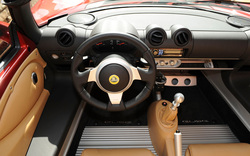
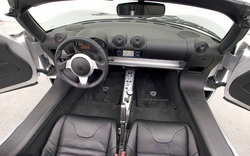
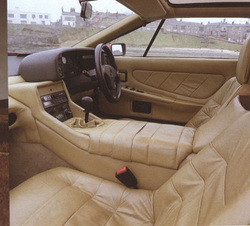
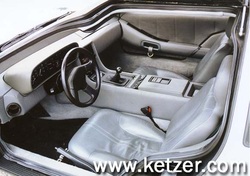
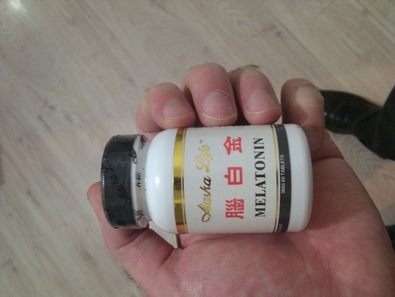
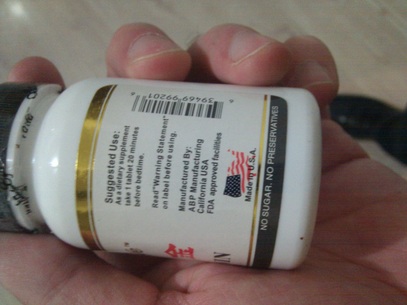

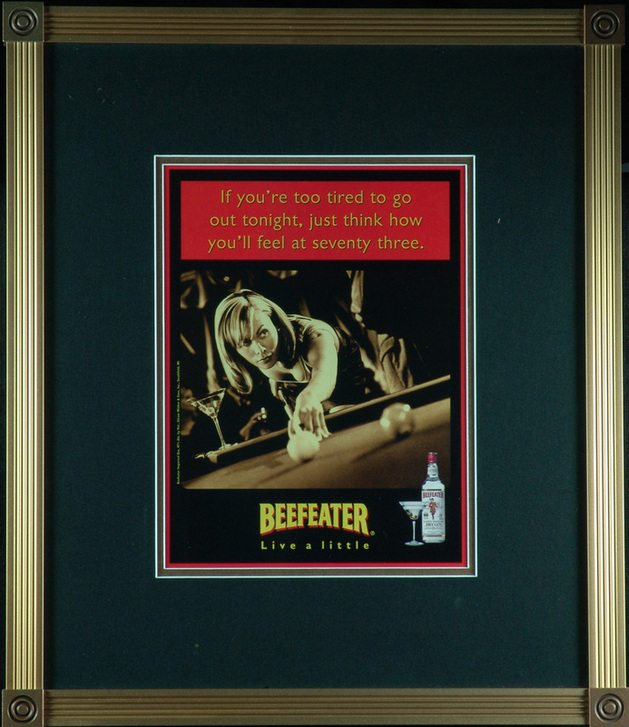
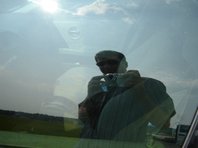
 RSS Feed
RSS Feed